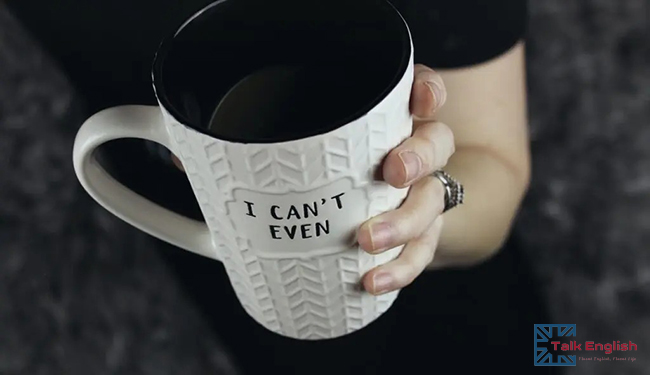
Vẫn nói very? Hãy sử dụng những tính từ này thay thế.
Có một cách dễ dàng để cải thiện vốn từ vựng tiếng Anh của bạn: tránh sử dụng từ 'rất.' Thay vào đó, hãy sử dụng các tính từ mạnh hơn. Lần này, chúng tôi sẽ chỉ cho bạn cách làm điều này bằng cách sử dụng một loạt các tính từ phổ biến.
1. Happy
When you want to say "very happy," you can instead say "overjoyed" (which means "filled with joy") or "ecstatic" (which means "very happy and excited").
-
He was
very happyoverjoyed when he found out he was having a baby girl. -
I'm
very happyecstatic about starting my new job.
Here's a paragraph from a news report that uses this word. A mother is very happy about her daughter climbing to the top of a tall rock called "El Capitan."
Selah's mother, Joy Schneiter, said she was worried that her daughter would get too tired to make it to the top. "But by day four I knew they would finish. I'm just really proud and ecstatic," she said.
You can also use "delighted" or "thrilled." Although "thriller" is used to describe certain kinds of scary movies, the adjective "thrilled" has a very positive nuance.
-
We'd be
very happydelighted if you joined us for dinner. -
I'm
very happythrilled to be traveling to Europe this summer.
2. Sad
When you want to say "very sad," you can say "depressed" (which means "very unhappy"), "heartbroken" (which means "filled with sadness"), or "devastated" ("very sad and shocked") instead.
-
She became
very saddepressed after losing her job. -
We were
very saddevastated when we heard that our friend had been swept away by the floods. -
He was
very sadheartbroken when his wife left him.
In the paragraph below, the owner of the oldest pub in England uses the word "heartbroken" to describe how he feels when he needs to shut down the pub.
"I am heartbroken," he wrote. "This pub has been so much more than just a business to me, and I feel honored to have played even a small part in its history."
Other alternatives include "miserable" and simply "down."
-
The cold and rainy weather this time of year always makes me feel
very sadmiserable. -
Jake's been
very sadreally down lately. Let's do something to cheer him up.
3. Angry
Another way to say "very angry" is "furious."
-
We were
very angryfurious when we realized he had been lying to us the whole time. -
My mom was
very angryfurious at me for skipping school.
Here's a paragraph from a news report which uses this word. In 2016, a gorilla called "Harambe" was shot and killed at an American zoo, and a lot of people were very angry about it.
Critics are furious about the killing of Harambe.
4. Tired

Instead of saying "very tired," you can say "exhausted." This means "out of energy."
-
The whole team felt
very tiredexhausted after the tournament. -
I'm recovering from the flu and still feel
very tiredexhausted.
Here is a paragraph that uses "exhausted" instead of "very tired" to talk about burnout.
If you feel exhausted all the time, are less interested in things or people you care about, and you're finding it harder and harder to do your job, then you might be burned out.
Even more alternatives are "worn out," which describes something that has been used until it is no longer any good, and "drained," which means "empty."
-
After a long international flight, I'm
very tiredworn out and just want to rest. -
The three-hour lecture left all of the students feeling
very tireddrained and ready for a break.
5. Cold
Another way to say "very cold" is "freezing." This means that something is so cold that it seems to be turning into ice.
-
It's
very coldfreezing in here. Can we close the window? -
It's
very coldfreezing outside. Make sure to put on a coat.
Here is a paragraph from a news report on people in Russia who swim in very cold water.
Ice swimmers in Russia call themselves "walruses." They cut holes through the ice to swim in the freezing water of rivers or lakes.
6. Small
Instead of saying "very small," you can say "tiny."
-
Malta is a
very smalltiny island in the Mediterranean Sea. -
I live in a
very smalltiny apartment.
Here is a paragraph from a news report that describes microplastics (very small pieces of plastic) with the word "tiny."
Microplastics have been found in human blood for the first time, causing scientists to worry that the tiny plastic particles could travel around the body and damage organs.
7. Big
When you want to say "very big," you can say "huge."
-
India is a
very bighuge country. If I travel there, I'd want to stay for at least a month. -
The couple spent a
very bighuge amount of money on their wedding.
Here is a paragraph from a news article that talks about a very big kite that could help make ships more eco-friendly.
A company in France has found a new way to help ships cross the ocean while reducing their greenhouse gas emissions: a huge kite.
You can also use "massive" as a similar alternative.
-
The news advised everyone to stay indoors due to a
very bigmassive storm approaching fast.
TIN TỨC LIÊN QUAN
Các cách sử dụng từ "Even" trong tiếng Anh
"Even" là một từ khá mơ hồ. Ban đầu, nó dường như rất đơn giản, nhưng nếu bạn nhìn kỹ hơn, bạn sẽ nhận ra rằng...
Những từ tiếng Anh dài nhất, chúng có nghĩa như thế nào?
Một số từ tiếng Anh dài nhất thường là các từ hình thành từ việc kết hợp nhiều tiền tố, hậu tố và đuôi. Dư�...
Từ vựng tiếng Anh thiết yếu về chủ đề Nấu nướng
Nếu bạn muốn thử nghiệm nấu ăn, có nhiều trang web tiếng Anh tuyệt vời với đủ loại món ăn để bạn khám phá. Nhưn...



